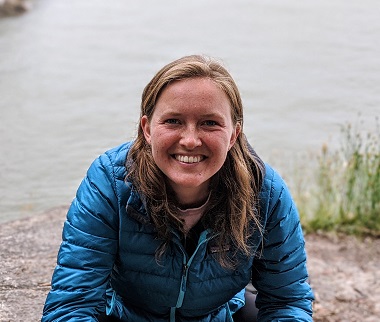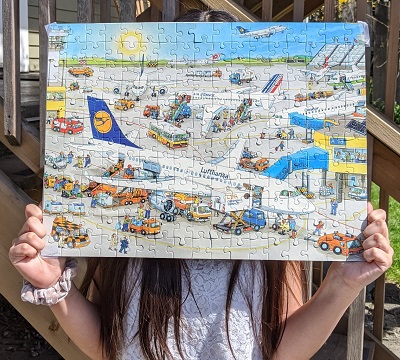
Anika Bauman lived alongside people seeking refugee protection, at Kinbrace, and is working on a book, Becoming Neighbours.
Our weekly Creating Conversation editorial gives opportunity for people to speak about issues they believe are vital for the church to respond to.
We asked Anika Bauman to respond to Mark Glanville’s accompanying comment (‘COVID-19, asylum seekers’ essential travel and the Bible’), in part to model healthy conversation.
One of the goals of this weekly article is to spark dialogue – and action. We invite you to join the dialogue either here on Church for Vancouver or on the CityGate Vancouver website.
Four years ago I stepped off a plane, arriving at YVR after a year of living abroad. There at the airport to greet me was Loren Balisky, co-founder of Kinbrace, a community in East Vancouver where refugee claimants and their hosts live side-by-side. I lowered my unwieldy backpack into the trunk of his car, and we drove across the city to Kinbrace, my new home.
It’s hard to remember what it was like to travel internationally, when today even crossing into the neighbouring health authority could result in a $575 fine. But what about when travel is a matter of survival? When we speak of ‘essential travel,’ what could be more essential than escaping persecution, war or gang violence?
Mark Glanville’s engagement with the realities of Covid for asylum seekers (or refugee claimants) rings true for me, and reminds me of the early days of the pandemic in the Kinbrace community. The global dynamics that force people to leave home do not stop when a pandemic breaks out.
Kanori and Mohammed are two men who arrived at Kinbrace during the first few months of the pandemic. While travel was restricted globally, they were on the move out of necessity. And, though they came from vastly different parts of the world, they both came to call Kinbrace home.
Rooted in the Christian tradition and the biblical imperative to welcome the stranger, Kinbrace has always aimed to receive refugees as brothers and sisters . . . as family. This welcome takes place in two houses with one lively, shared backyard – complete with a trampoline, basketball hoop, gardens and a chicken coop.
Within the houses there are six independent apartments for refugee claimants and three for hosts (typically Canadian individuals or families), as well as a large kitchen and office space. While hosts live in the community long term, refugee claimant residents spend three to six months at Kinbrace when they first arrive in the country.
For people seeking safety, Kinbrace is not only a temporary shelter, but – just as critically – it is a place of belonging.
All of this came into focus for me when the first COVID-19 restrictions caused our world to shrink to the size of these two properties. We who were living at Kinbrace at the time struggled to decode public health guidelines that were aimed at the average nuclear family.
Meanwhile, our ‘bubble’ contained 20 people between the ages of seven months and 70 years, hailing from six different countries on four different continents and speaking five different mother tongues.

A young Kinbrace resident holds up a puzzle completed during the early days of the pandemic.
In an unprecedented way, I found myself confronted with the challenges of living in a community amidst such diversity. Like most other families during the pandemic, we rubbed each other the wrong way, got into disagreements and somehow wound our way to reconciliation – time and time again.
But, unlike most families, we faced other challenges, too. Work permits and refugee hearings were indefinitely delayed, leading to heightened uncertainty about the future and prolonged separation from spouses and children, many of whom remained in countries with limited access to health care.
We felt, and continue to feel, the profound personal impact of systems-level stalls in refugee claim processing.
A year ago, we were sitting in the backyard for a weekly sharing circle, listening to each other one by one as we expressed our concerns. As the meeting reached its conclusion, a woman named Samya, who had been quiet for most of the evening spoke up.
“Could we pray?” she asked. Her simple question stopped me in my tracks. Of course! I thought. (But why didn’t I think of that?) What other response could possibly match the magnitude of these individual challenges and this collective uncertainty? So, there in the backyard, Samya stood up, bowed her head, and prayed for us and for our world.
Samya’s question, I believe, is an invitation to the church. It is an invitation to cast our gaze beyond our present realities towards the life-sustaining love of God. And, in doing so, to enlarge our imaginations from self-preservation towards congregations and communities that truly enfold the stranger. To reconsider, in the kingdom of God, who might be included in our ‘bubble.’
Anika Bauman is a writer and visual practitioner who spent three and a half years (2017 – 2020) living alongside people seeking refugee protection in Canada. Her forthcoming book, Becoming Neighbours, is an offer of gratitude to her neighbours from around the world. Anika lives in the vibrant Grandview-Woodland neighbourhood on the unceded ancestral territory of the Coast Salish Peoples.

